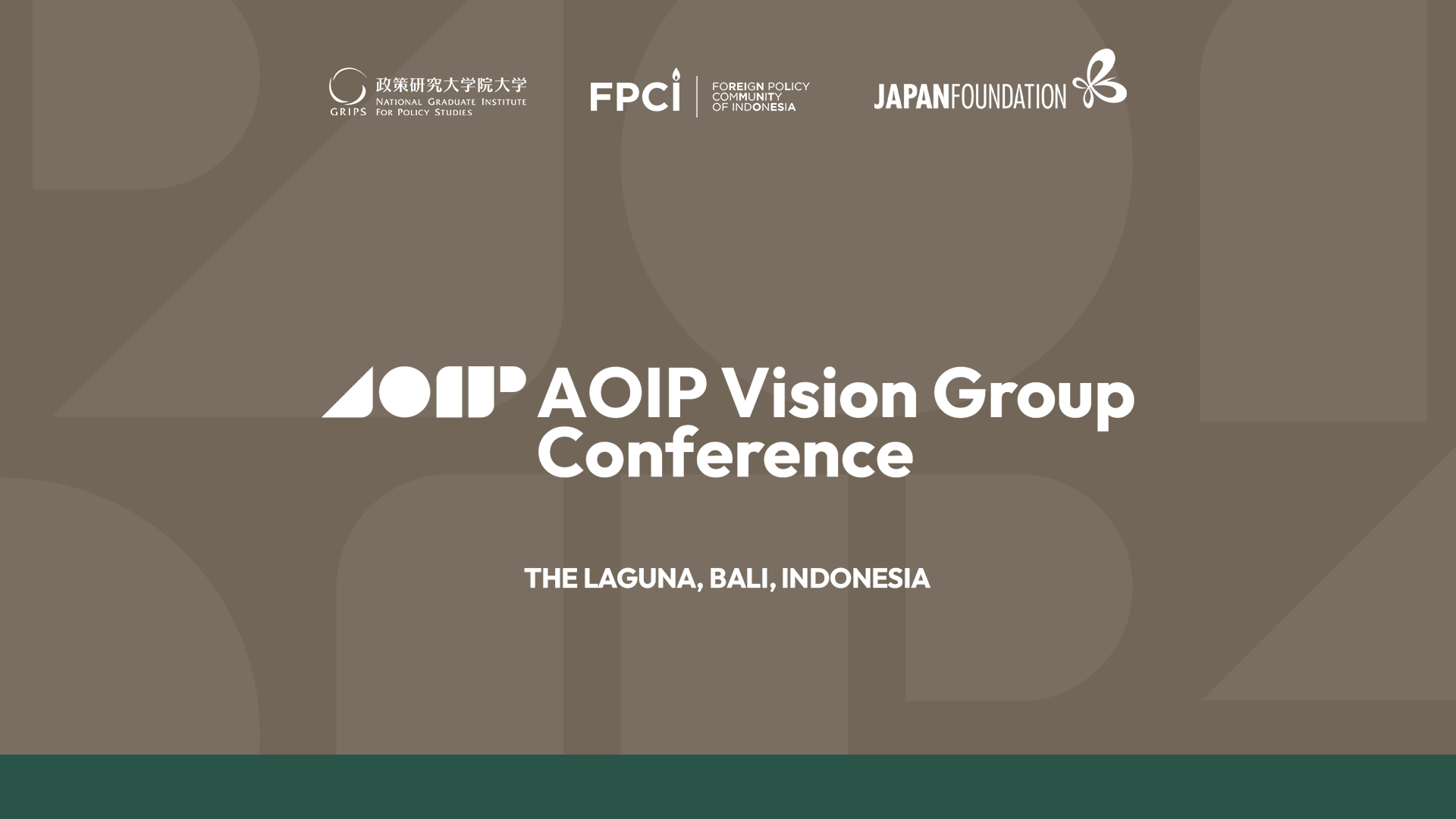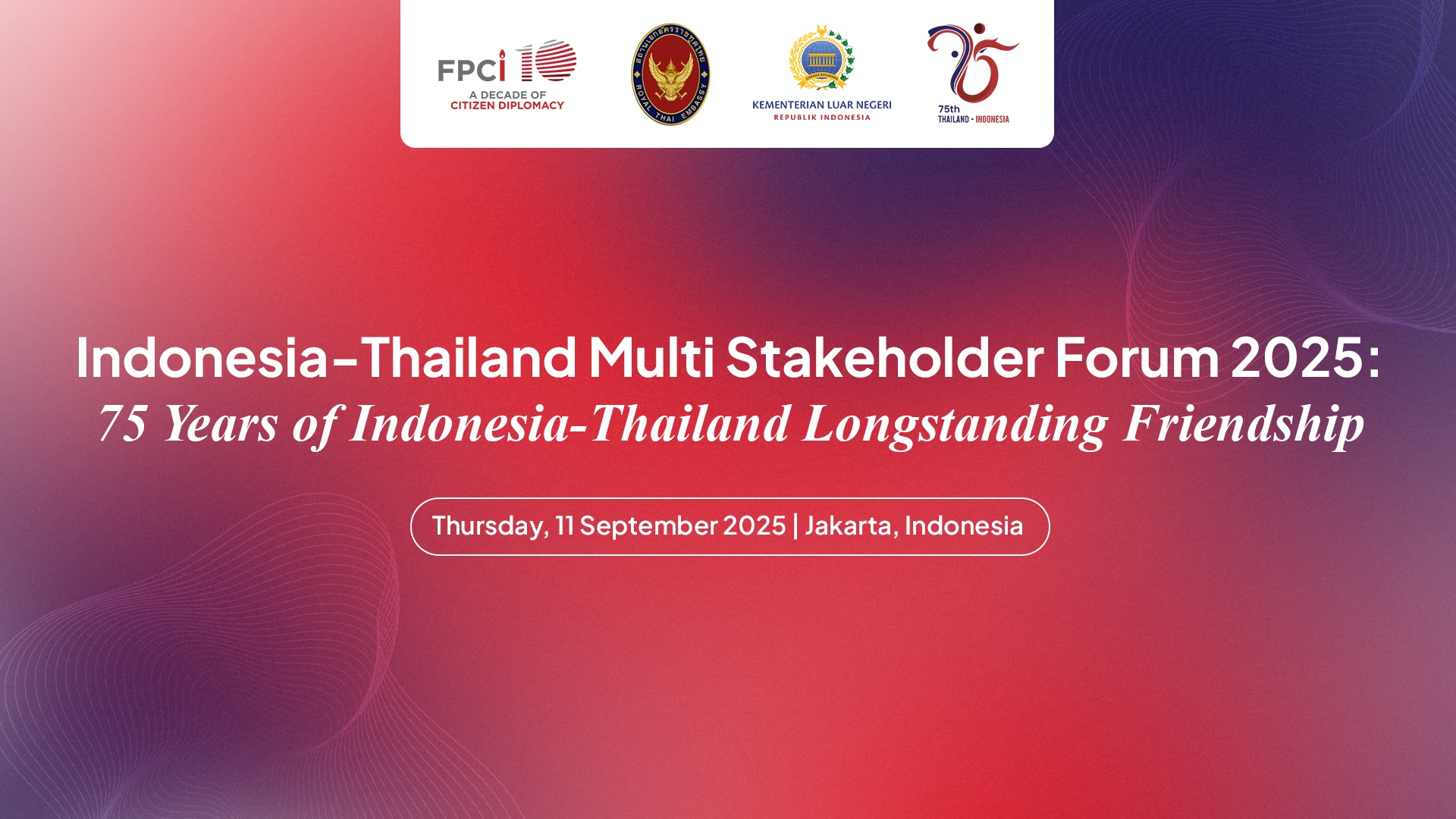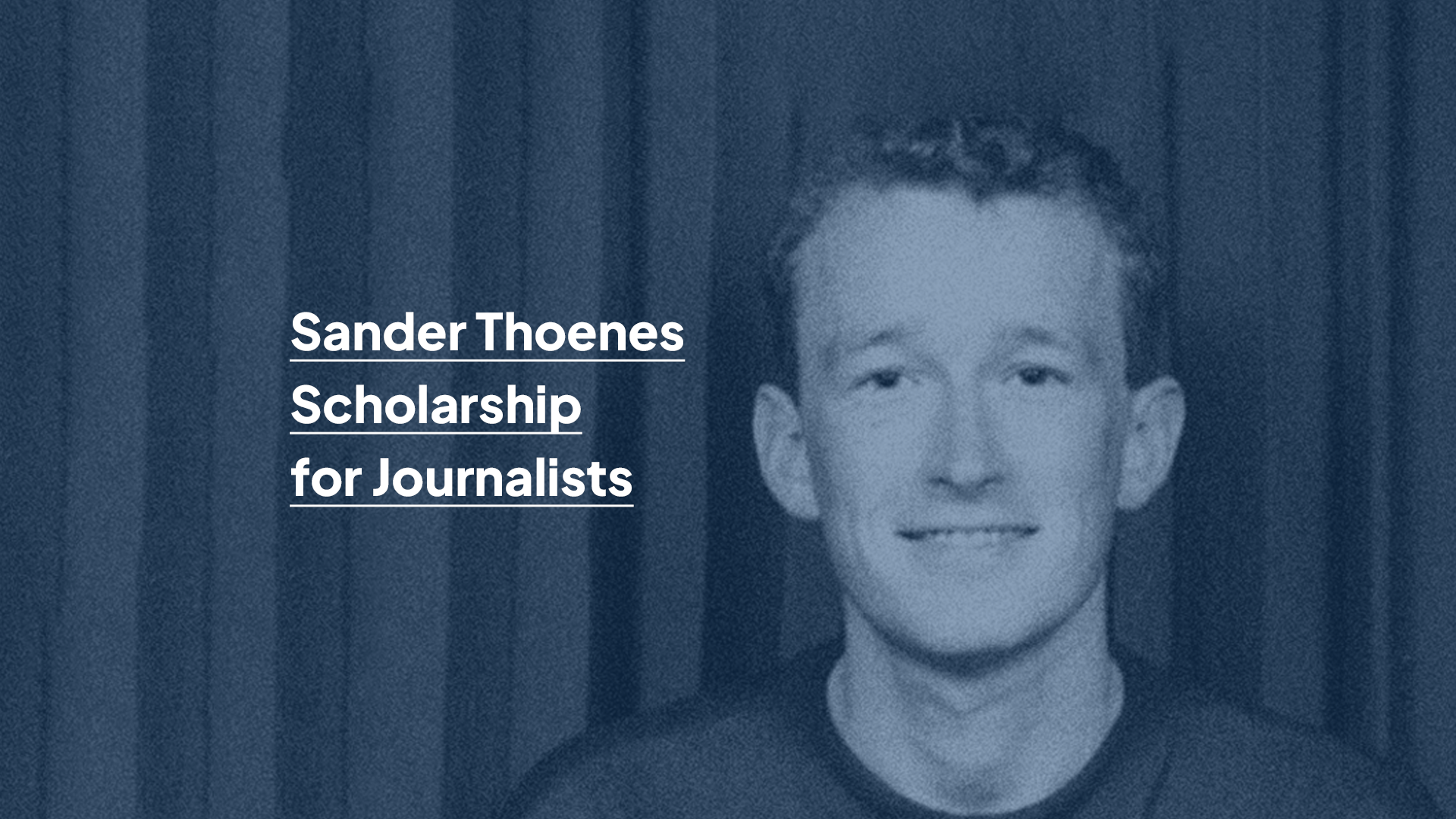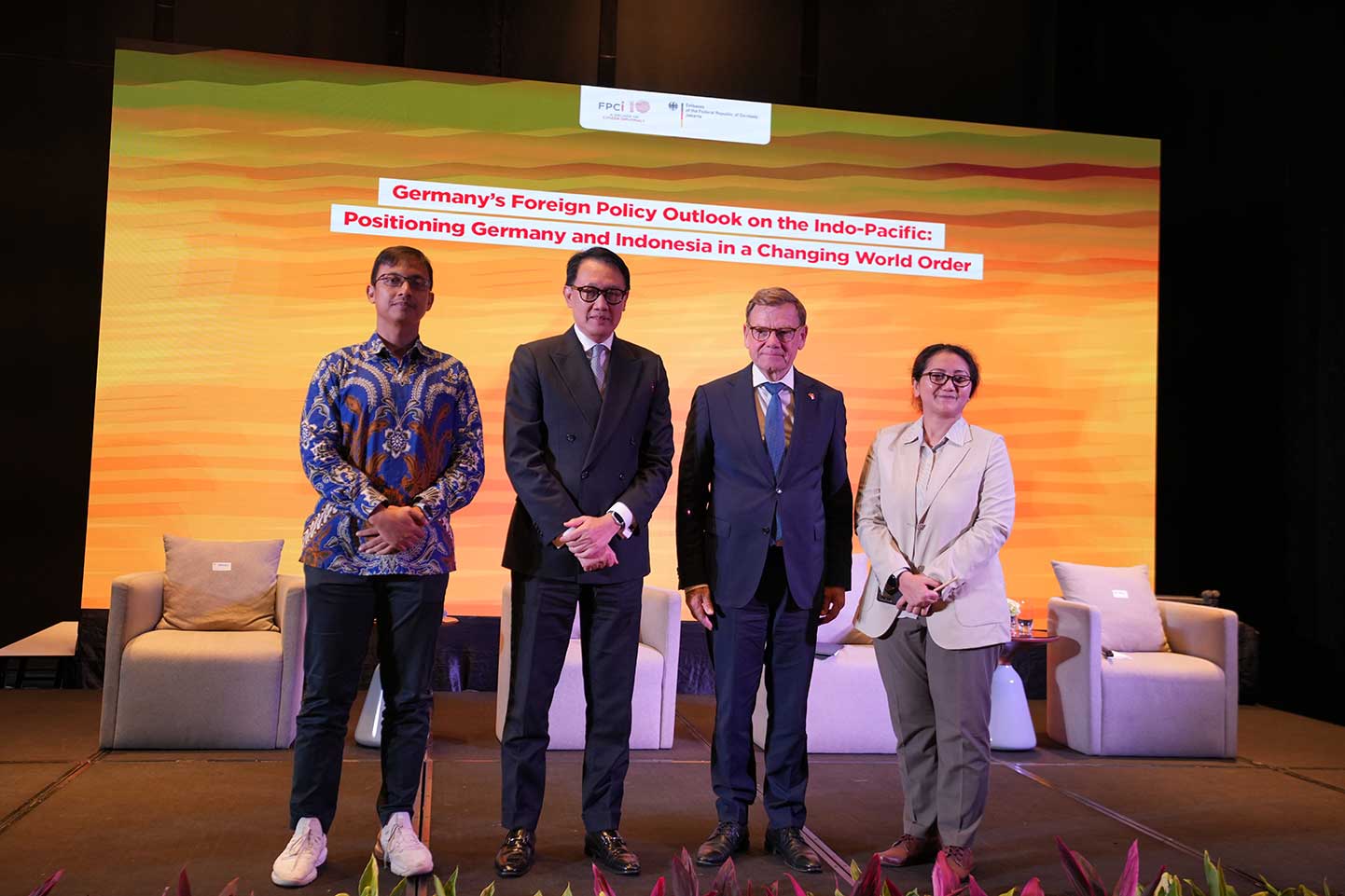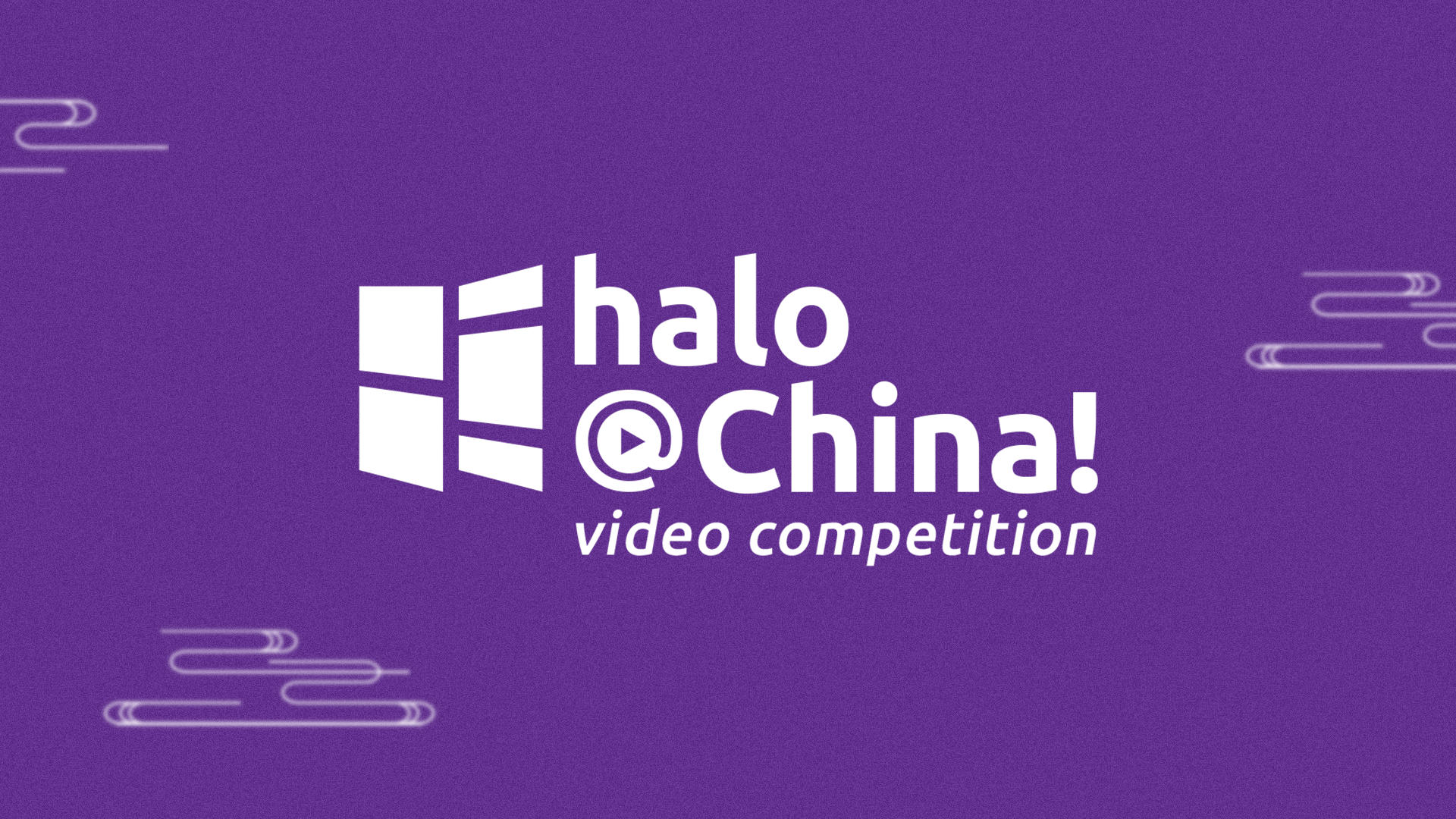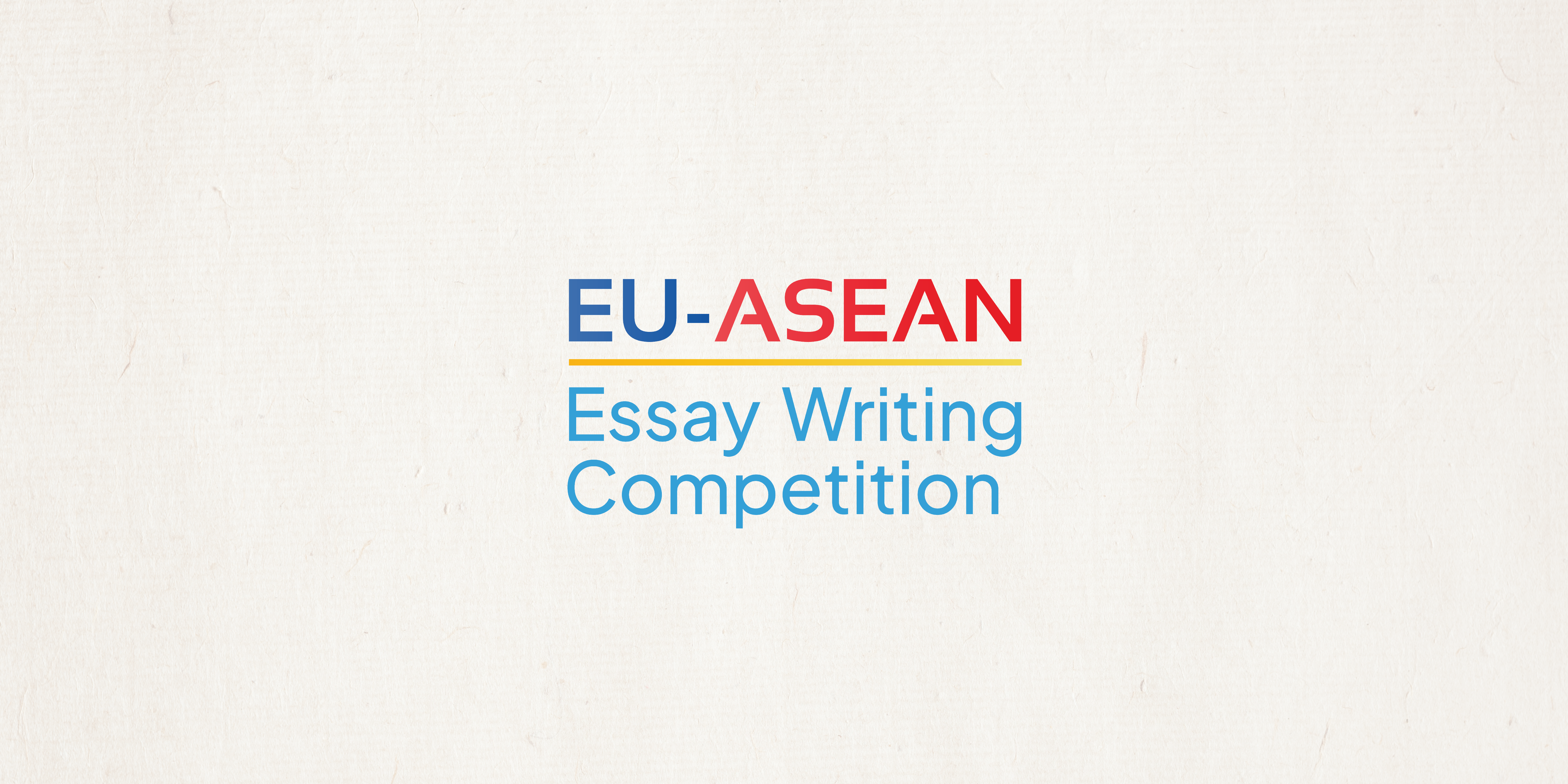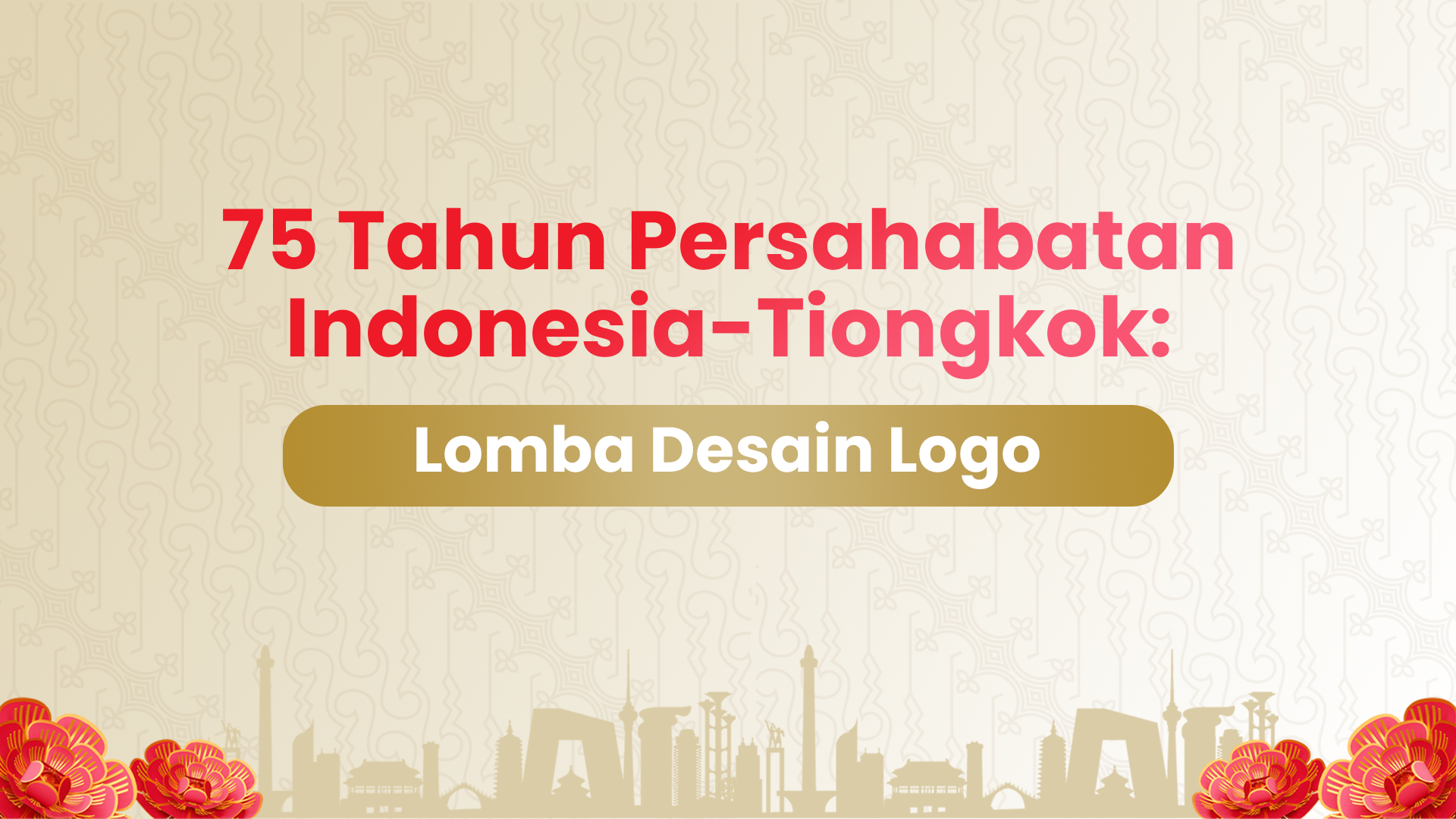The AOIP Vision Group Conference is an international symposium which brought together delegates from each ASEAN Member State as well as a number of Dialogue Partners to discuss the operationalization of the ASEAN Outlook on the Indo-Pacific (AOIP). This forum acted as a platform for deliberations on the direction and realization of cooperation in four key areas under the AOIP framework: maritime, connectivity, Sustainable Development Goals (SDGs), and economy.
Continue readingIndonesia-Thailand Multi-Stakeholder Forum 2025: 75 Years of Indonesia-Thailand Longstanding Friendship – 11 September 2025
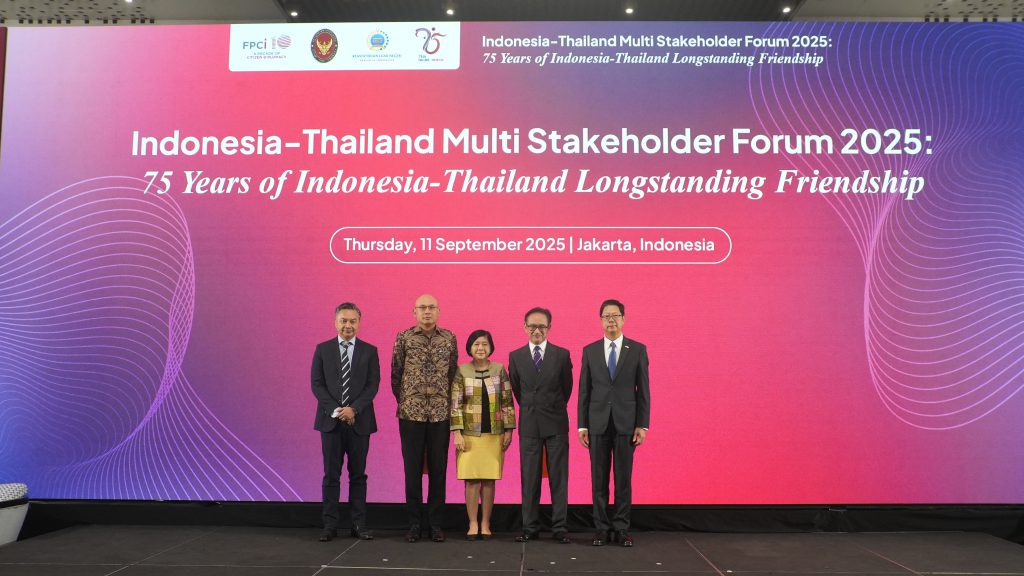
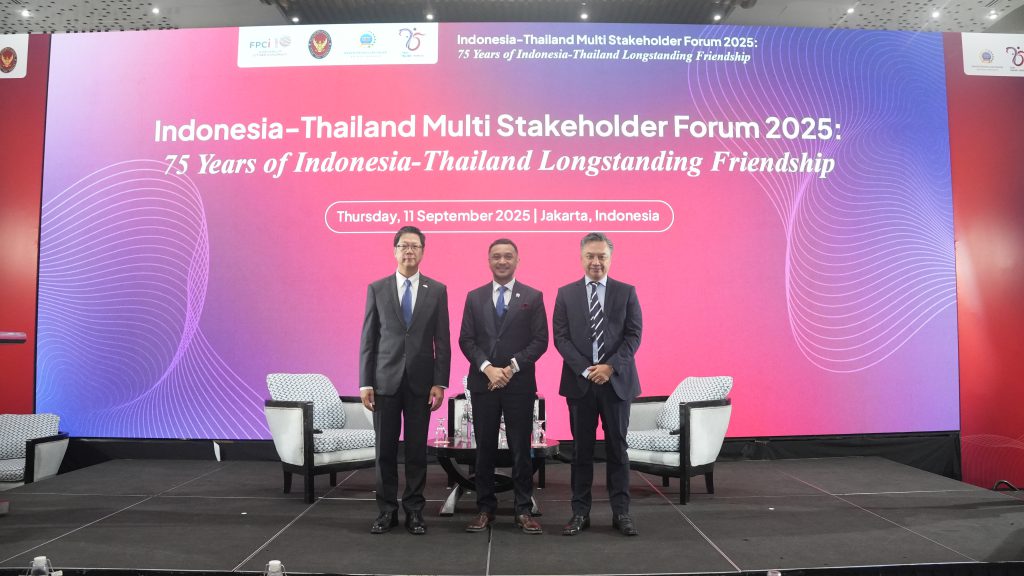
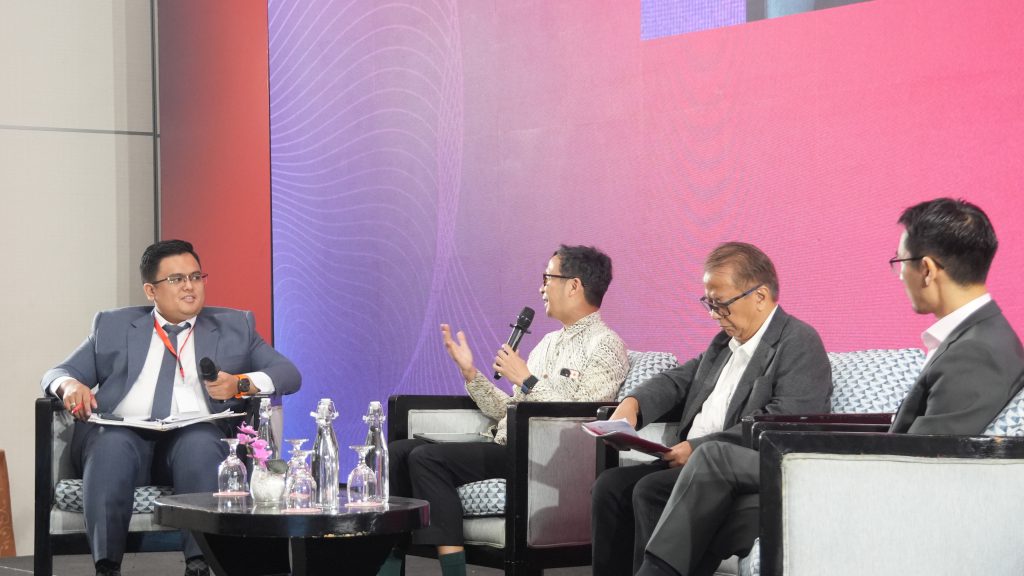
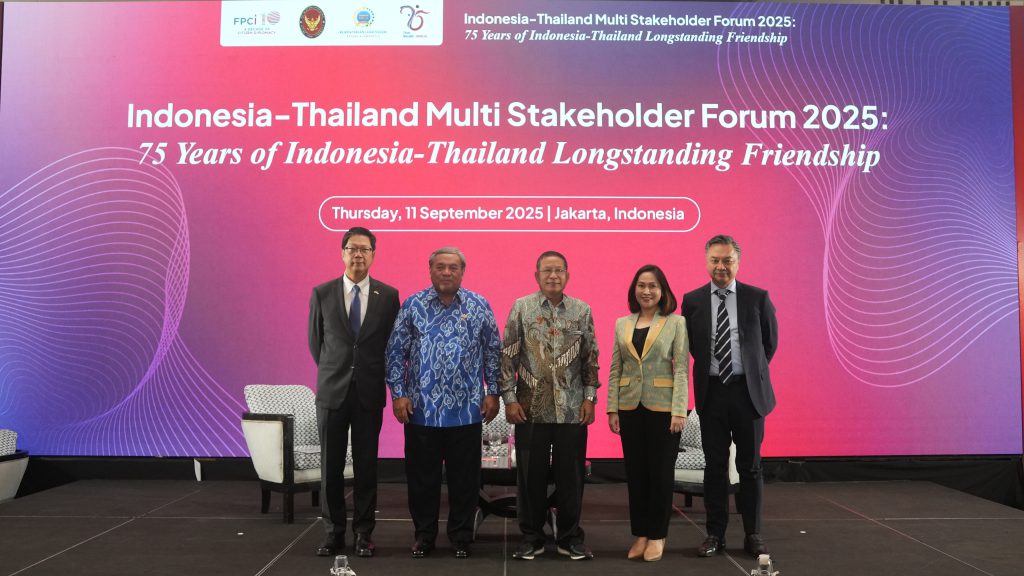
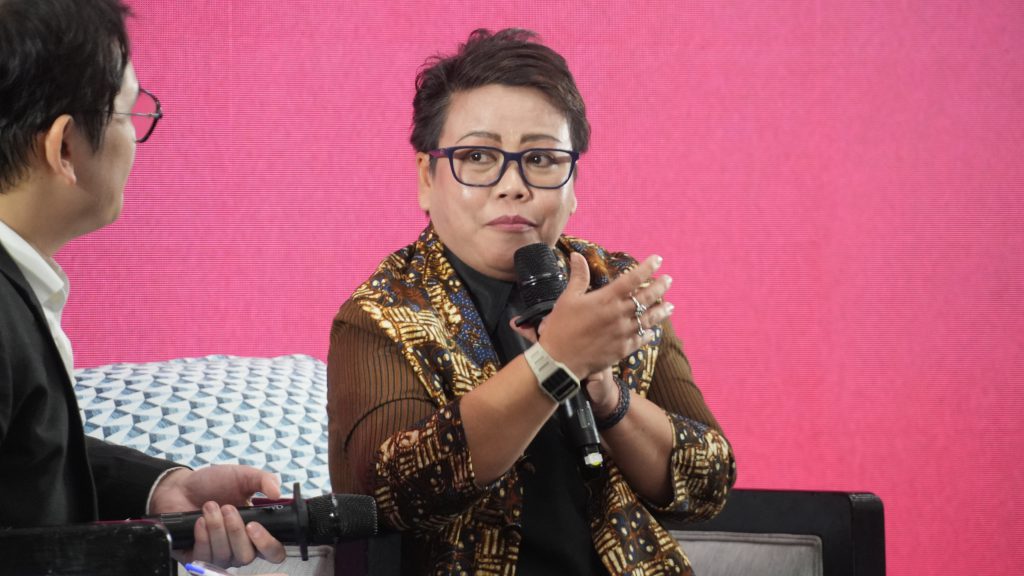
On 11 September 2025, FPCI in collaboration with the Royal Thai Embassy in Jakarta and the Ministry of Foreign Affairs of the Republic of Indonesia held the “Indonesia-Thailand Multi-Stakeholder Forum 2025: 75 Years of Indonesia-Thailand Longstanding Friendship”. This track 1.5 forum convened key stakeholders from government, business groups, academia, civil society, and students from both countries to reflect on the longstanding bilateral relationship and explore opportunities to guide the direction of the Indonesia-Thailand Strategic Partnership.
The forum consisted of :
- Opening Remarks by:
- H.E. Mr. Arrmanatha Christiawan Nasir, Vice Minister for Foreign Affairs of the Republic of Indonesia
- H.E. Mr. Prapan Disyatat, Ambassador of the Kingdom of Thailand to the Republic of Indonesia
- Dr. Dino Patti Djalal, Founder and Chairman Foreign Policy Community of Indonesia
- Keynote Remarks by:
- Dr. Marty Natalegawa, Founder/Convenor of the Amity Circle, Minister of Foreign Affairs of the Republic of Indonesia (2009 – 2014)
- H.E. Giring Ganesha, Vice Minister for Culture, Republic of Indonesia
- Political and Security Cooperation Session
- Economic Cooperation Session
- Socio-Cultural Cooperation Session
Click here to read the Policy Recommendation: bit.ly/PR_IDTH75
Click here to read the Report: bit.ly/R_IDTH75
Sander Thoenes Scholarship for Journalists
The Sander Thoenes Scholarship for Journalists is a new initiative by the Foreign Policy Community of Indonesia (FPCI) in collaboration with the Embassy of the Kingdom of the Netherlands in Indonesia and RNW Media.
This scholarship honors the life and legacy of Sander Thoenes, a Dutch journalist who was killed while covering the conflict in Timor-Leste in 1999. The program aims to support journalists from Indonesia and Timor-Leste who are committed to ethical, impactful, and courageous journalism.
Two selected journalists, one from Indonesia and one from Timor-Leste, will have the opportunity to join a 5-day media training program in the Netherlands in late January 2026, designed to strengthen reporting skills, deepen understanding of international media practices, and foster cross-border collaboration.
Continue readingIn Conversation with Germany’s Foreign Minister H.E. Dr. Johann Wadephul on “Germany’s Foreign Policy Outlook on the Indo-Pacific: Positioning Germany and Indonesia in a Changing World Order”
On 20 August 2025, Foreign Policy Community of Indonesia (FPCI), in collaboration with the Embassy of the Federal Republic of Germany in Jakarta, hosted a public discussion featuring Federal Foreign Minister of Germany, H.E. Dr. Johann Wadephul, on “Germany’s Foreign Policy Outlook on the Indo-Pacific: Positioning Germany and Indonesia in a Changing World Order.” The event marked Minister Wadephul’s first public address during his inaugural official visit to Asia-Pacific as the Foreign Minister of Germany. The discussion highlighted Germany’s foreign policy outlook on the Indo-Pacific and its efforts to strengthen its engagement with Indonesia as a key partner.
Moderated by Prof. Poppy Sulystianing Winanti, Distinguished Professor of International Relations at Universitas Gadjah Mada, the discussion featured three speakers:
- H.E. Dr. Johann Wadephul, Federal Foreign Minister of Germany
- H.E. Arif Havas Oegroseno, Vice Minister of Foreign Affairs of Indonesia
- Dr. Shofwan Al Banna Choiruzzad, FPCI Fellow; Associate Professor at Universitas Indonesia
Opening Remarks by Ambassador Soemadi Brotodiningrat
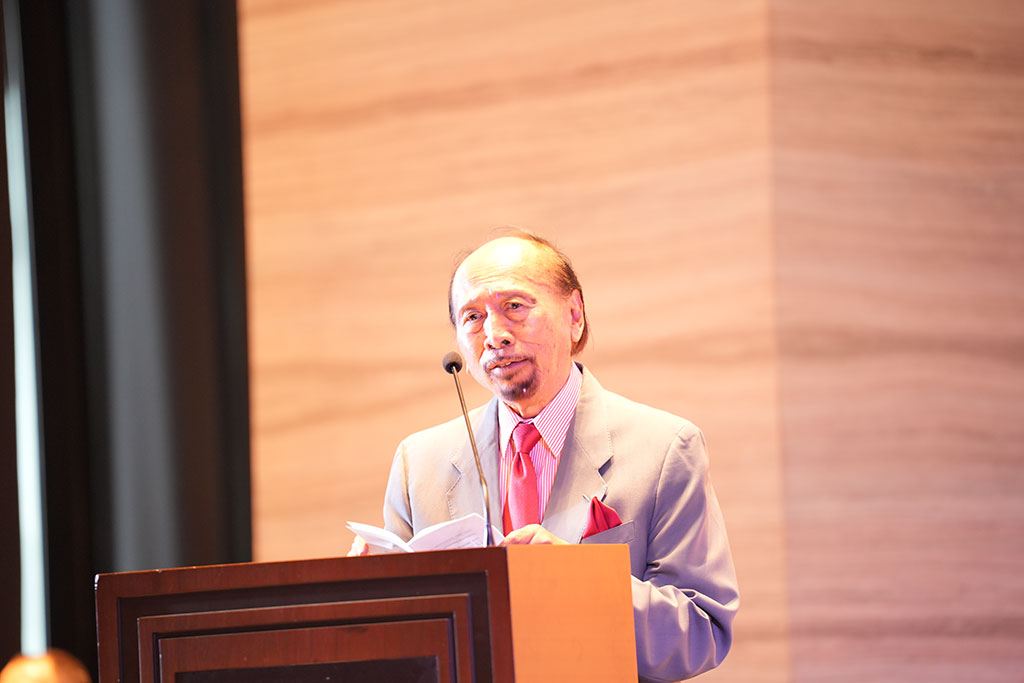
In his opening remarks, Ambassador Soemadi Brotodiningrat (FPCI Senior Fellow) welcomed Minister Wadephul on his first official visit to Asia-Pacific. Ambassador Soemadi also expressed his optimism that the discussion will generate ideas that will help Indonesia and Germany in facing the current challenges of change.
Keynote Address by H.E. Dr. Johann Wadephul
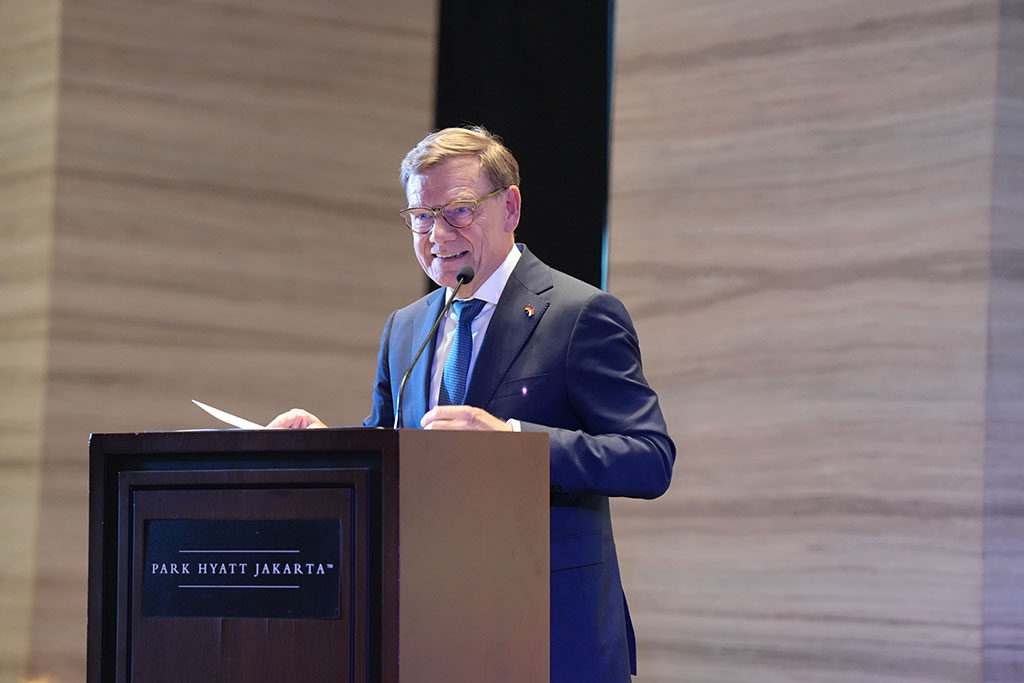
In his keynote address, H.E. Dr. Johann Wadephul underscored the significance of Indonesia as one of Germany’s key partners.
“That’s what I am here for: to strengthen and expand our bonds. We, Indonesians and Germans, have a common goal: to achieve freedom, security, and prosperity through partnership with others. We are meeting at a time when Europe, Europeans, and Asians are facing a multitude of new challenges together.
[…] Our joint answer to this must be an unwavering commitment to investing in our partnerships. Because we are only strong, we are only able to move forward, if we stand together.”
Foreign Minister Wadephul emphasized Germany and Indonesia’s shared core values, objectives, and commitment towards a rules-based international order as the foundation of their partnership. Beyond these values, he noted that Germany and Indonesia face similar challenges and share common interests in addressing them.
Furthermore, Minister Wadephul reiterated Germany’s commitment to the EU’s Global Gateway Programme, in the form of various partnerships in different sectors with Indonesia.
“Germany is proud to be the lead country in jointly upgrading Indonesia’s rail connectivity in the framework of the Surabaya Regional Railway Line. And it’s also why Germany is assuming greater international responsibility in security and defense policy. Why we are helping to strengthen the resilience of our partners. […] But it’s also why we are engaged in the Just Energy Transition Partnership (JETP) with Indonesia. Together, we are turning our shared commitment to decarbonization into tangible progress because global challenges need collective action and reliable partnership.”
Public Discussion on “Germany’s Foreign Policy Outlook on the Indo-Pacific: Positioning Germany and Indonesia in a Changing World Order”
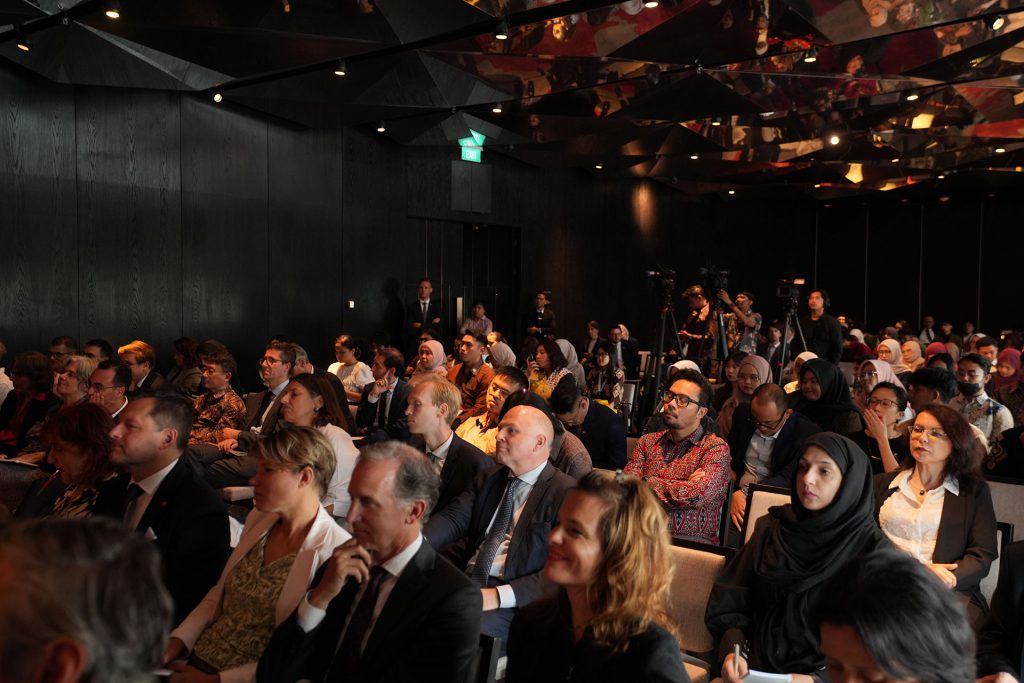
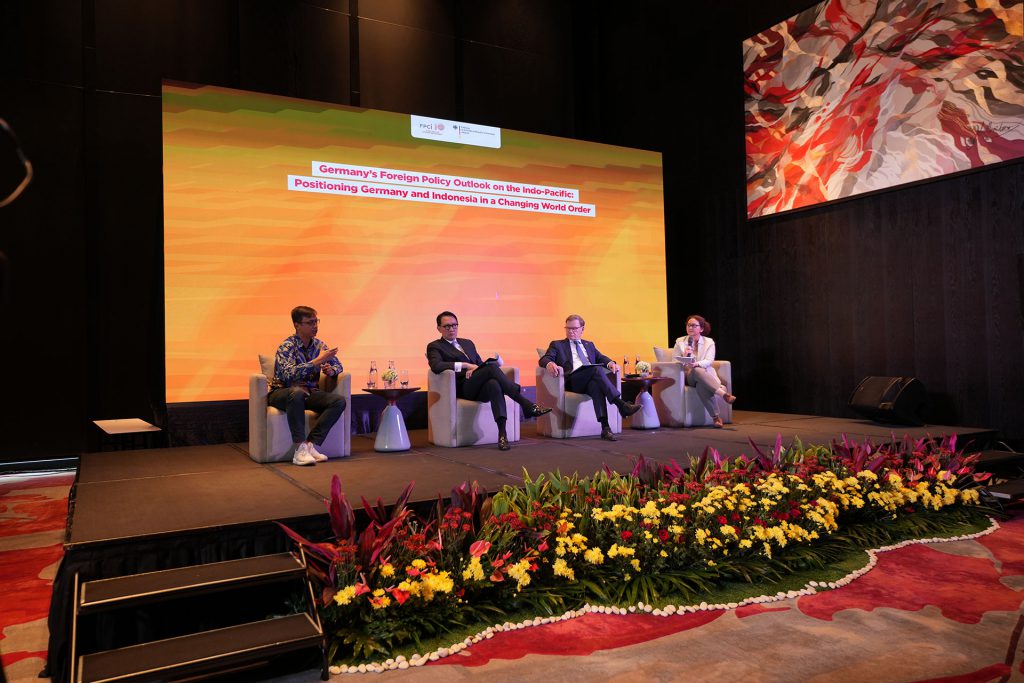
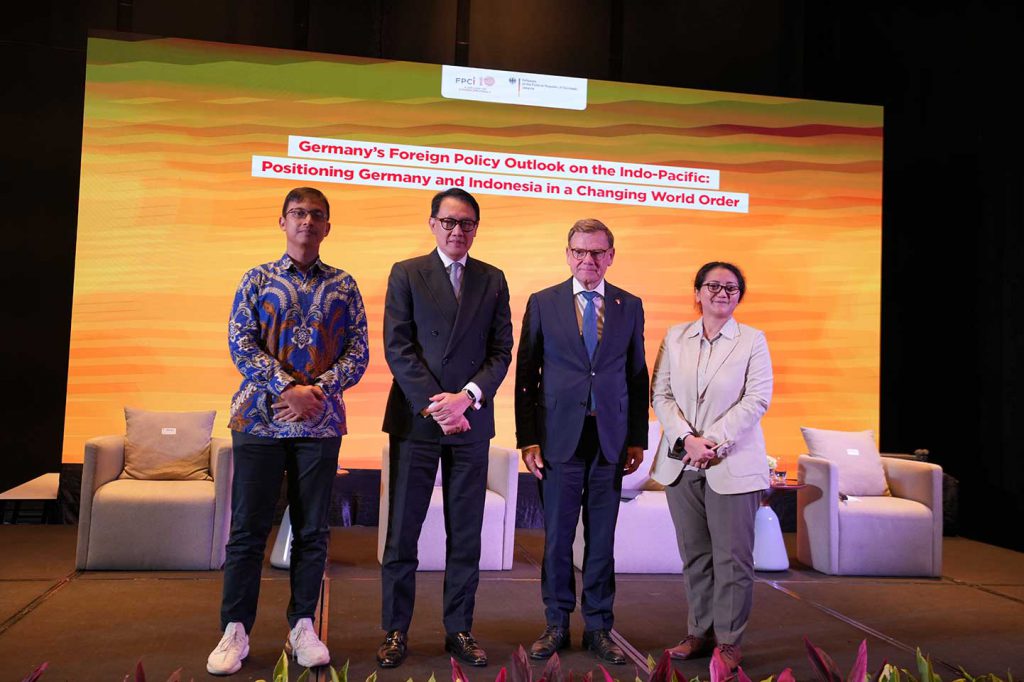
The panel discussion explored Germany’s engagement and its foreign policy outlook in the Indo-Pacific region, areas of strategic cooperation with Indonesia, and joint efforts in maintaining sovereignty, security, and prosperity.
Foreign Minister Wadephul emphasized the growing interdependence between Europe and the Indo-Pacific. He noted that developments in one region inevitably affect both security and economic stability in the other, making closer cooperation essential. He also stressed that Europe and Indonesia share common values and interests in defending the international rules-based order, and that prosperity in both regions depends on protecting this system. From a European perspective, he described the Indo-Pacific as “the most interesting region,” pointing to its young populations, stable state systems, and rising political and economic potential. For Germany, he emphasized, this is precisely why a greater focus on the Indo-Pacific—and on Indonesia as a partner—is both necessary and timely.
Building to Minister Wadephul’s points, H.E. Arif Havas Oegroseno, Vice Minister of Foreign Affairs of Indonesia, reaffirmed the shared core values and commitment towards a rules-based international order, and expressed his concern on the eroded international law—underlining these common grounds as a strong foundation for mutual understanding and cooperation between Indonesia and Germany. Vice Minister Havas also shared his experience in partnering with Germany.
“The world is lacking reliability and certainty. These are the two strategic rare commodities today. Certainty is becoming a very important and losing commodity in many relations around the world. So I think from my experience as an ambassador to Germany, Germany is a very reliable partner.”
Dr. Shofwan Al Banna Choiruzzad presented his view on Indonesia-Germany’s partnership and highlighted the need for more agile and innovative cooperation in times of great challenges.
“Germany and Indonesia, as well as the largest groupings like EU and ASEAN, should not only work as usual, because extraordinary times, the times of crisis, need not only the usual cooperation-building measures. We need to be faster, we need to be more creative in developing and shaping this cooperation.”
Dr. Shofwan also shared his view on Indonesia’s approach to cooperation. Indonesia follows a more inclusive approach to international relations, favoring cooperation with all partners over great-power rivalry. Meanwhile, Germany shares the same values and reiterates its support in infrastructure and energy development in Indonesia.
The public discussion reflected Germany’s commitment to deepening cooperation with Indonesia and the wider Indo-Pacific region, supporting multilateralism, and addressing global issues collectively. The event was attended by more than 60 German delegates, 20 think tank and academic representatives, 30 press correspondents, and 180 university students.
You can rewatch the public discussion on our YouTube channel “Sekretariat FPCI.” In Conversation with H.E. Dr. Johann Wadephul
Halo China Video Competition 2025
Foreign Policy Community of Indonesia (FPCI) and the Embassy of the People’s Republic of China in Jakarta, China Public Diplomacy Association, and CGTN are in cooperation to bring back the Halo China video competition in the year 2025!
Continue readingEU–ASEAN Essay Writing Competition
Foreign Policy Community of Indonesia (FPCI), in collaboration with the EU Mission to ASEAN, is launching an essay-writing competition under the theme, “Building Bridges, Shaping Futures: Commemorating 5 Years of EU–ASEAN Strategic Partnership.”
The EU–ASEAN Essay-Writing Competition invites university students across Southeast Asia to reflect on the past, present, and future of EU–ASEAN cooperation. As we mark the fifth anniversary of the EU–ASEAN Strategic Partnership, this competition offers a platform for students to share their ideas, aspirations, and fresh perspectives on how these two regions can work better together.
Three winners will be selected to take part in a fully funded visit to Jakarta, where they will meet with officials from the EU Mission to ASEAN, ASEAN Secretariat, and FPCI, gaining a behind-the-scenes view of regional diplomacy and multilateral cooperation.
Continue reading75 Years Indonesia-China: Logo Design Competition
In celebration of the 75th anniversary of diplomatic relations between Indonesia and China, the Chinese Embassy in Jakarta, the Indonesian Embassy in Beijing, and Foreign Policy Community of Indonesia (FPCI) are proud to present the “75 Years Indonesia-China: Logo Design Competition.”
This competition invites Indonesian and Chinese youth aged 17-35 years old to showcase their creativity by designing the official logo for this significant milestone. The logo should reflect Indonesia and China’s cooperation and strong ties over the past 75 years.
We received an overwhelming submissions with over 600 designs from Indonesia and China. After a meticulous judging process by the Chinese Embassy in Jakarta, the Indonesian Embassy in Beijing, and FPCI, we are thrilled to announce the winning logo design for the “75 Years Indonesia-China: Logo Design Competition.”
Congratulations to Martha Cahya Angga Saputra, whose design was selected for its originality, cultural significance, and ability to represent the enduring friendship between Indonesia and China. The winning logo will be used in all official events and materials related to the anniversary celebrations.

For inquiries regarding the use of the logo, please send an email to wahyu@fpcindonesia.org.
Winners’ Ceremony Documentations
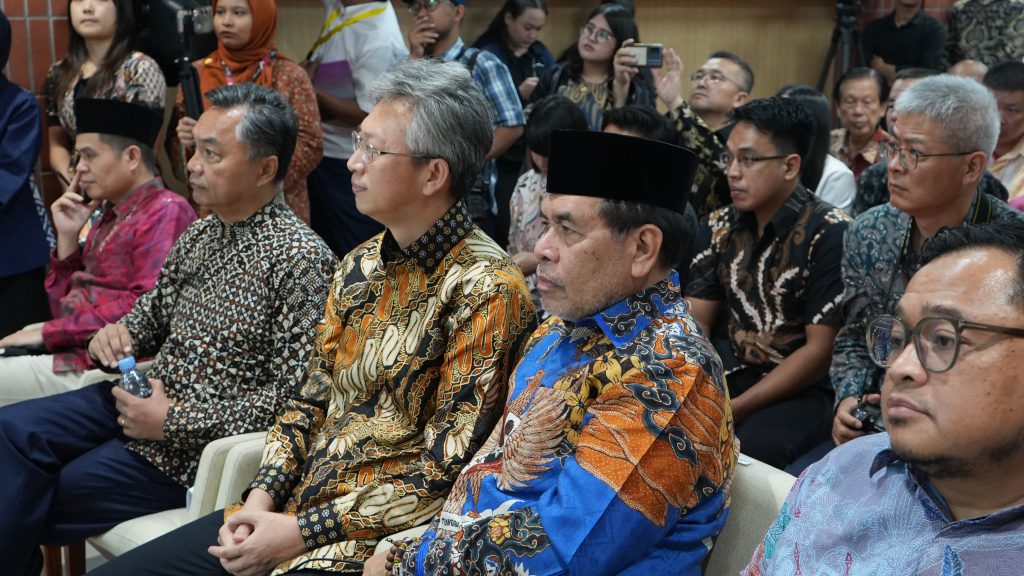

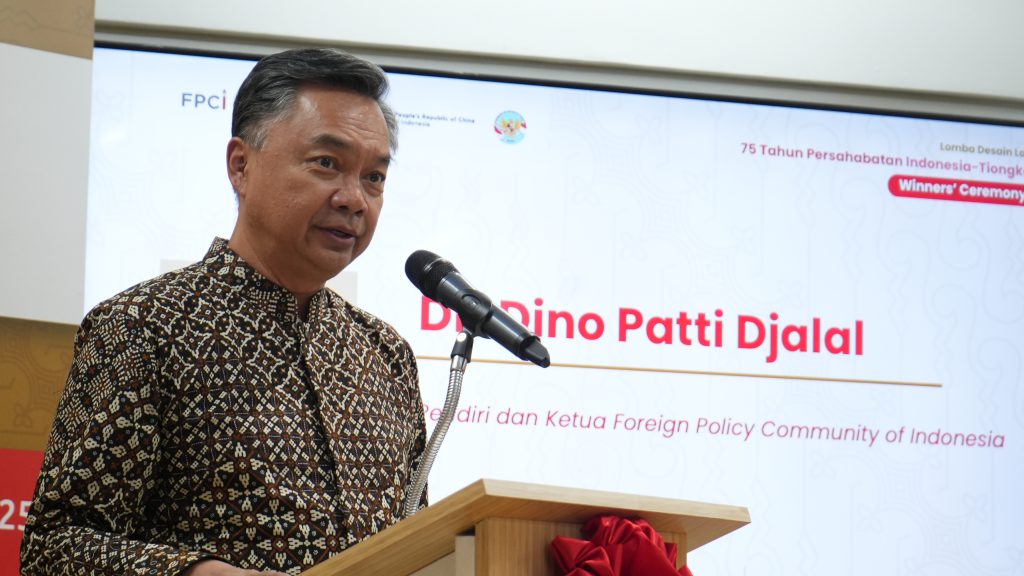
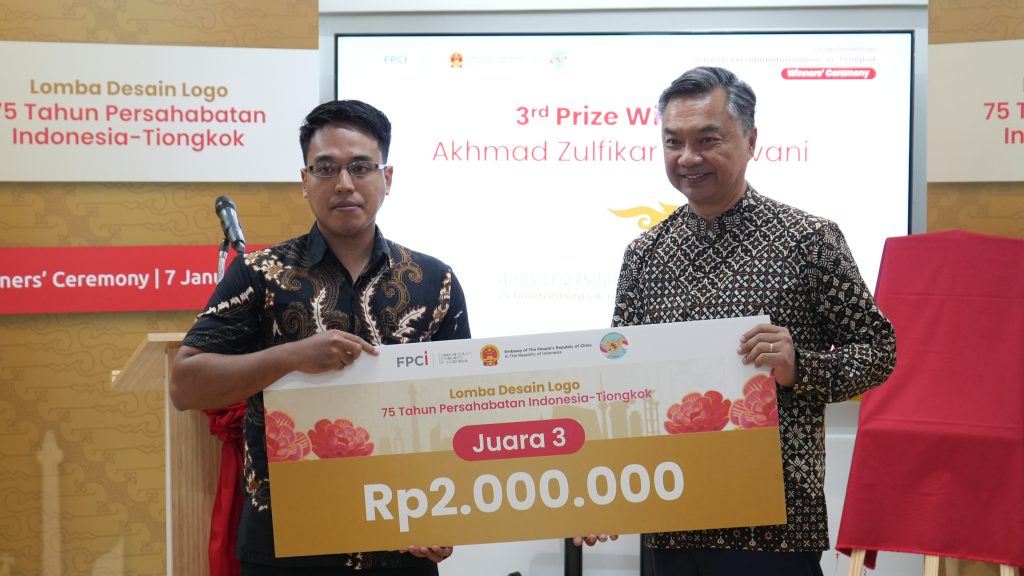
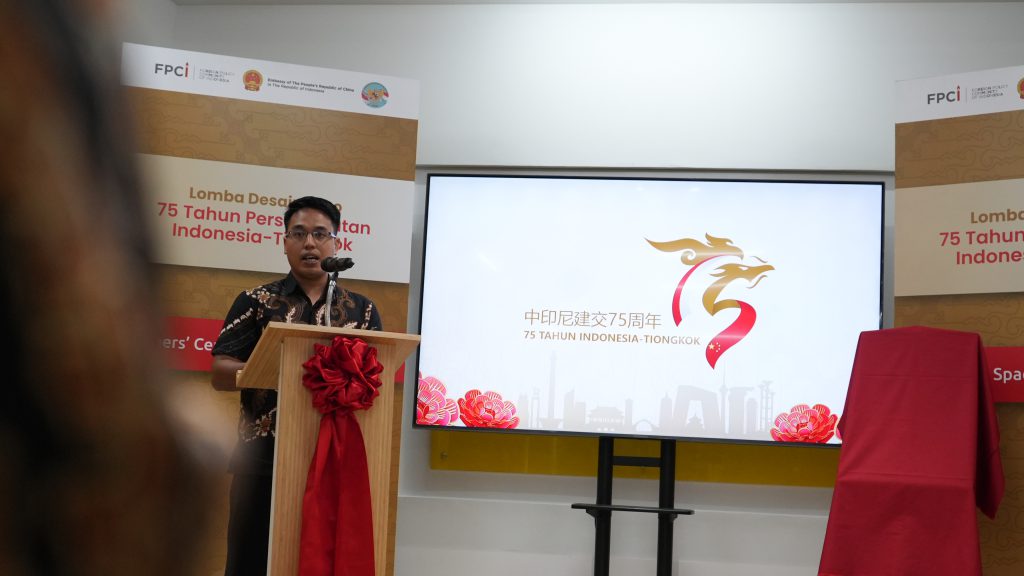
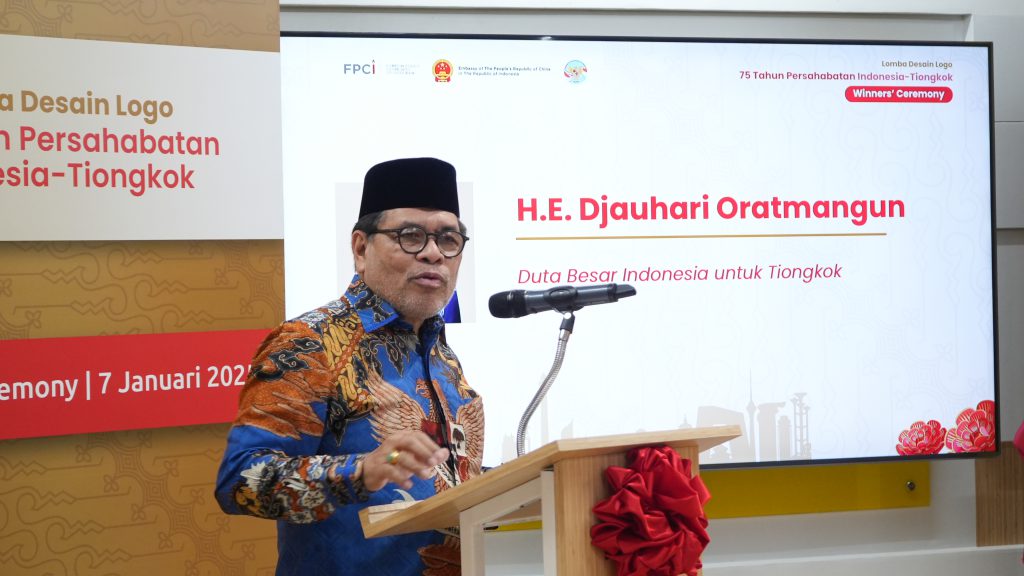
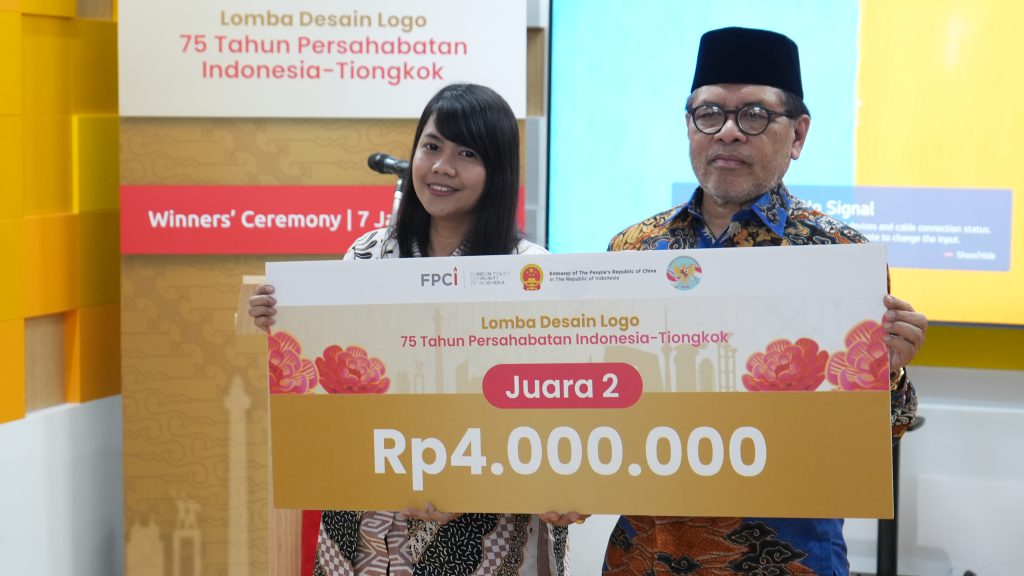
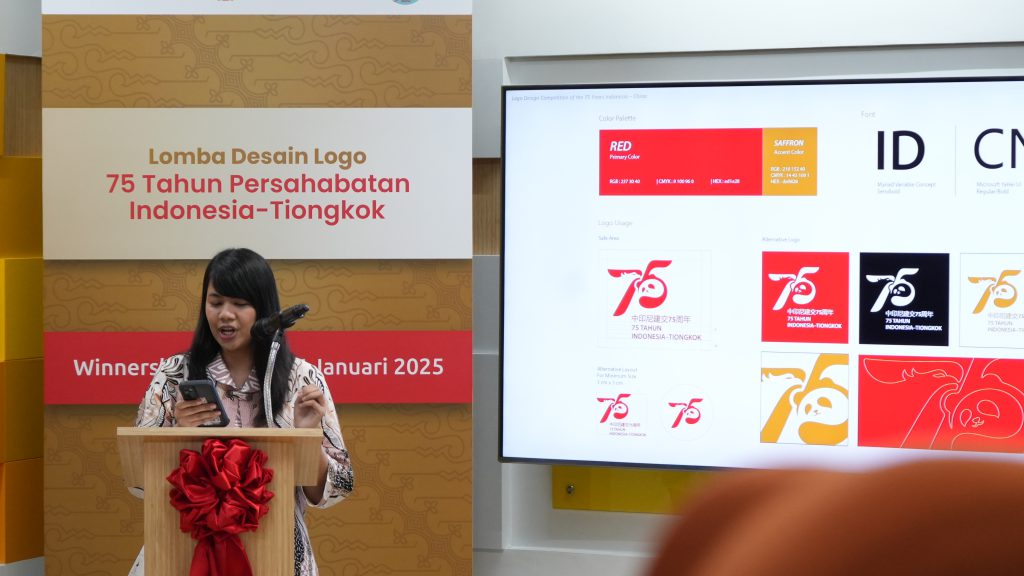
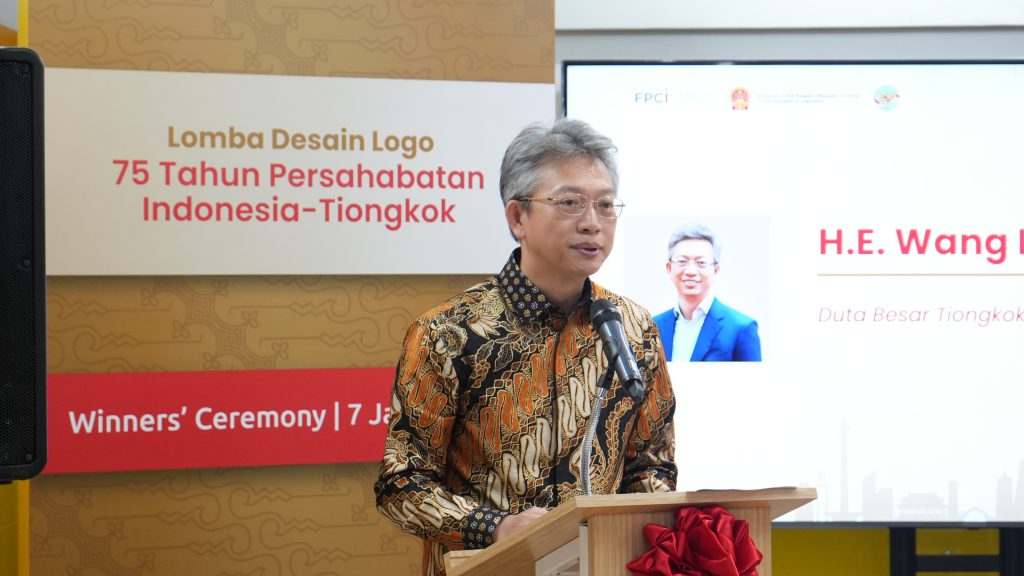








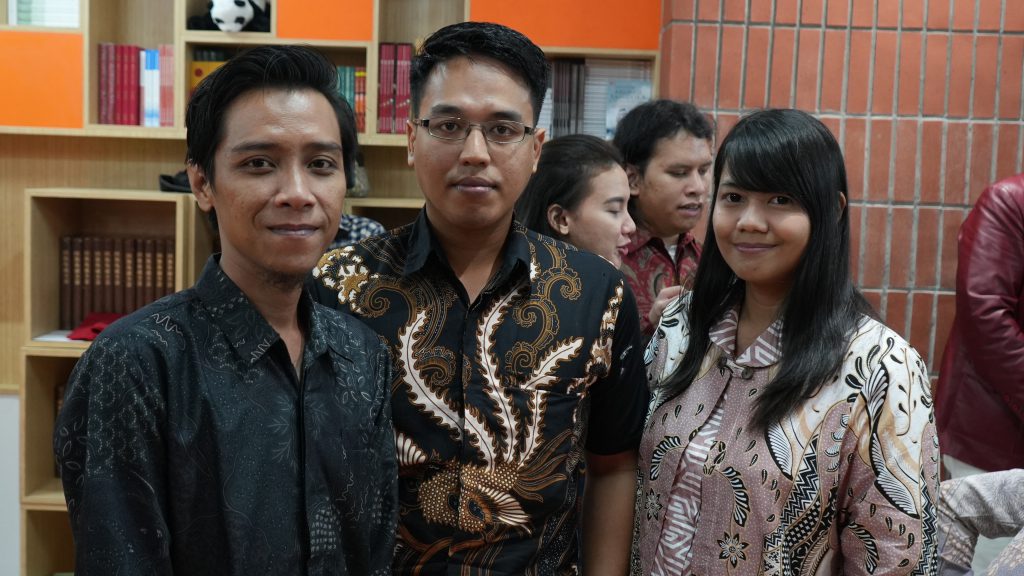
Competition Timeline
| 27 September 2024 | Launch of 75 Years Indonesia-China: Logo Design Competition |
| 27 September – 18 October 2024 | Logo Submissions Period |
| 19 October – 31 December 2024 | Selection Process |
| 7 January 2025 | Winner Announcement |
Participant Guidelines
- Create your logo and short explanation text on how the logo represents the 75 years of Indonesia-China diplomatic relations;
- Upload your logo and short explanation text in one folder to Google Drive or other online file transfer services;
- Fill out the registration form at bit.ly/75IDCHFORM;
- Add the link to your logo submission folder to the registration form. Please make sure the link is public and can be accessed by the committee at anytime;
- Judges selection process;
- Selected winners will attend the winners’ announcement ceremony (online).
Submission Criteria
- Participants must be Indonesian or Chinese citizens aged 17-35 years old, proven by uploading a photo of a government-issued ID card;
- Participants must reside in Indonesia or China at the time of the competition.
- Participants must fill in the registration form at bit.ly/75IDCHFORM and attach the link to your logo submission folder, you can use Google Drive or other online file transfer services (Please make sure the link is public and can be accessed by the committee at anytime);
- Individual/group participants must submit only one logo;
- Logo must be an original work and has never been submitted to any competition;
- Logo must NOT be generated using artificial intelligence technology;
- Logo must NOT include anti-religious, racial, violent, or pornographic content and elements. No offensive or sensitive content and elements are allowed;
- Logo must convey a clear visual message, and must be visually appealing both on a small scale (as small as 3 cm x 3 cm) and on a large scale;
- Logo must be submitted in two versions: color and black & white versions;
- Logo must be submitted in the following file formats (jpg, jpeg, png, or PDF);
- Logo submission must include a PDF file that consists of a short text (up to 150 words) in English, explaining how the logo design represents 75 years of Indonesia-China diplomatic relations;
- Selected Top 20 logos will be required to provide high-resolution file format / Ai vector (AI / EPS);
- Color gradients, contrast, and other image elements can be adjusted by the Organizers.
Selection Criteria
Logo entries will be judged based on the following criteria:
- Authenticity – Does the design reflect uniqueness and creativity? Is the design visually appealing and eye-catching?
- Relevance – Does the design reflect and contribute to the goal of building Indonesia-China friendship? Does the design tell an interesting story about the relationship between Indonesia and China through the promotion of the 75th-anniversary logo?
- Respect – Does the design respect Indonesian and Chinese culture and national identity?
- Adaptability – Can the design be reproduced in multiple formats and accommodate multiple applications as part of the 75th Anniversary celebration?
- Aesthetics and Accessibility – Does the design demonstrate balanced visual and color coordination? Is the design accessible to various groups?
Prizes
Winners of the 75 Years Indonesia-China: Logo Design Competition will receive cash prizes and an official certificate.
| 1st Prize (1 Winner) | Rp12.000.000 / 5000元人民币 |
| 2nd Prize (1 Winner) | Rp4.000.000 / 2000元人民币 |
| 3rd Prize (1 Winner) | Rp2.000.000 / 1000元人民 |
| Top 20 Prize (17 Winners) | Rp500.000 / 200元人民币 |
Frequently Asked Questions
What is 75 Years Indonesia-China: Logo Design Competition?
75 Years Indonesia-China: Logo Design Competition is a nationwide logo design competition hosted by Foreign Policy Community of Indonesia, the Embassy of the People’s Republic of China in Jakarta, and the Ministry of Foreign Affairs of Indonesia.
Is there a registration fee?
No, this logo design competition is free of charge. All you need to do is to fill in the registration form at bit.ly/75IDCHFORM.
Who is eligible to enter this video competition?
Indonesian and Chinese youth aged 17-35 are eligible to enter this logo design competition.
Can I work in a group?
Yes, you can. One logo submission is eligible for one individual/group participant.
How many winners will be selected? What is the prize for the winners?
The committee will select the 1st, 2nd, 3rd, and Top 20 winners. Winners will receive a cash prize totaling up to Rp26.500.000.
| 1st Prize (1 Winner) | Rp12.000.000 / 5000元人民币 |
| 2nd Prize (1 Winner) | Rp4.000.000 / 2000元人民币 |
| 3rd Prize (1 Winner) | Rp2.000.000 / 1000元人民 |
| Top 20 Prize (17 Winners) | Rp500.000 / 200元人民币 |
What are the judging criteria for the logo?
The logo will be assessed based on Originality (15%), Adaptability (20%), Relevancy (25%), and Aesthetics (40%).
Will I get a certificate by joining this program?
Yes, all of the 1st, 2nd, 3rd, and Top 20 winners will obtain a certificate for this program.
What should I put on my PDF file and what language should it be?
Your PDF file should consist of a short text that explains how your logo design represents 75 years of Indonesia-China’s diplomatic relations. The text should be in English with a maximum of 150 words.
What is the main theme of the logo design competition?
The main theme of the logo design competition focuses on the cooperation and strong bonds between Indonesia and China over the past 75 years. Participants are encouraged to explore and expand upon this theme, using their creativity and research to develop unique and meaningful designs.
What are the accepted file formats for the logo submission?
The committee will only accept these following file formats for the logo submission: jpg, jpeg, png, or PDF. Only selected Top 20 logos will be required to provide high resolution file format / Ai vector (AI / EPS) (minimum of 300 dpi).
Will the organizer own the intellectual property right over the winning design?
Yes. By joining this logo design competition, participants agree that the Organizer will own the intellectual property rights over the winning design.
Can I use artificial intelligence software or applications to create the logo?
No, you cannot. The submitted logo must be an original work and cannot be generated using any artificial intelligence technology.
Where do I submit my logo design?
Firstly, create and upload your logo and short explainer text in one folder to Google Drive or other online file transfer services. Then visit the registration form via bit.ly/75IDCHFORM. Fill in your personal details and submit the link to your logo submission folder. Make sure the link is public and accessible to download by the committee at anytime (check your sharing settings/permissions). If you have not completed your logo design yet, you may fill in the registration form first and edit the form at a later time by save your responses using Microsoft .
When is the deadline to submit my logo design?
All submissions are due by Friday, 18 October 2024, 22:00 WIB (GMT+7) / 23:00 CST (GMT+8).
Pembacaan Surat Terbuka Aspirasi Pemuda/i Indonesia mengenai Demokrasi Indonesia dan Forum Publik “Owning the Journey of Our Democracy”
Generasi muda memiliki peran penting dalam sejarah demokrasi Indonesia seperti pada masa kemerdekaan dan reformasi. Meskipun tidak terlibat langsung dalam peristiwa sejarah tersebut, tantangan demokrasi kedepan masih ada sehingga semangat generasi muda dalam memperkuat demokrasi Indonesia sangatlah penting. Untuk memperkuat semangat ini, Indonesia Youth Democracy Forum kembali hadir dengan mengusung tema “Owning the Journey of Our Democracy.”
FPCI Global Town Hall SeriesThe US and European De-Risking Strategy
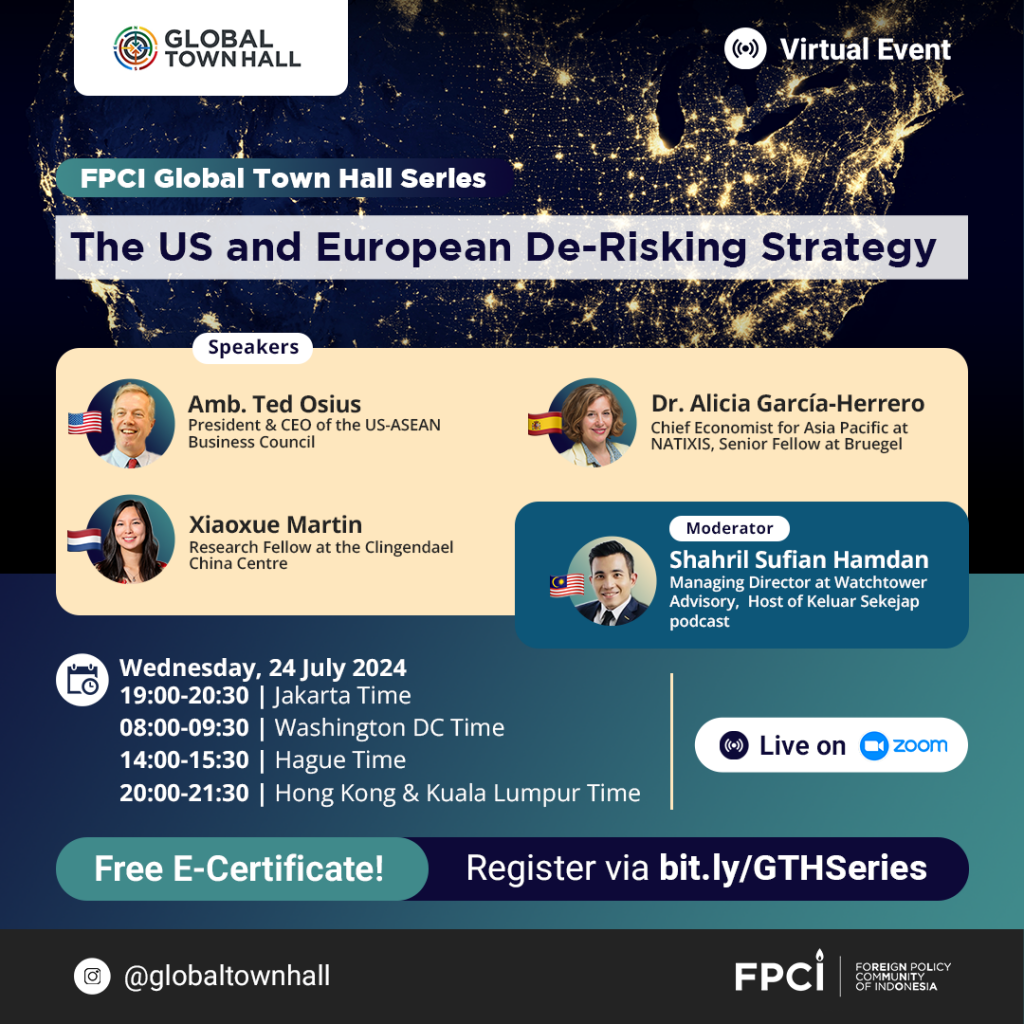
Recently, on many occasions, the US President and EU leaders have been talking about a de-risking strategy. A strategy to diversify its economy and put an end to economic dependency. European Commission President, Ursula von der Leyen, introduced the term de-risking in March 2023 in describing the EU’s approach in diversifying its supply chain away from China. This de-risking strategy generally covered reducing dependencies, non-tariff measures, diversification of sources, and boosting domestic production.
Disentanglement from China’s established dominance in global supply chains, especially in critical sectors like electronics and raw materials, remains difficult. In 2022, China accounted for 70% of the world’s raw material production. China is among the US and EU’s top 3 biggest trading partners. The translation of “de-risking” itself still varied. While the EU is mainly motivated by the potential disruption in the European economy due to overdependence, the US finds itself having a more hawkish interaction with China.
Against this background, Foreign Policy Community of Indonesia is back with a Global Town Hall Series on “The US and European De-risking Strategy” to delve into the different perspectives between the Global North and Global South countries

